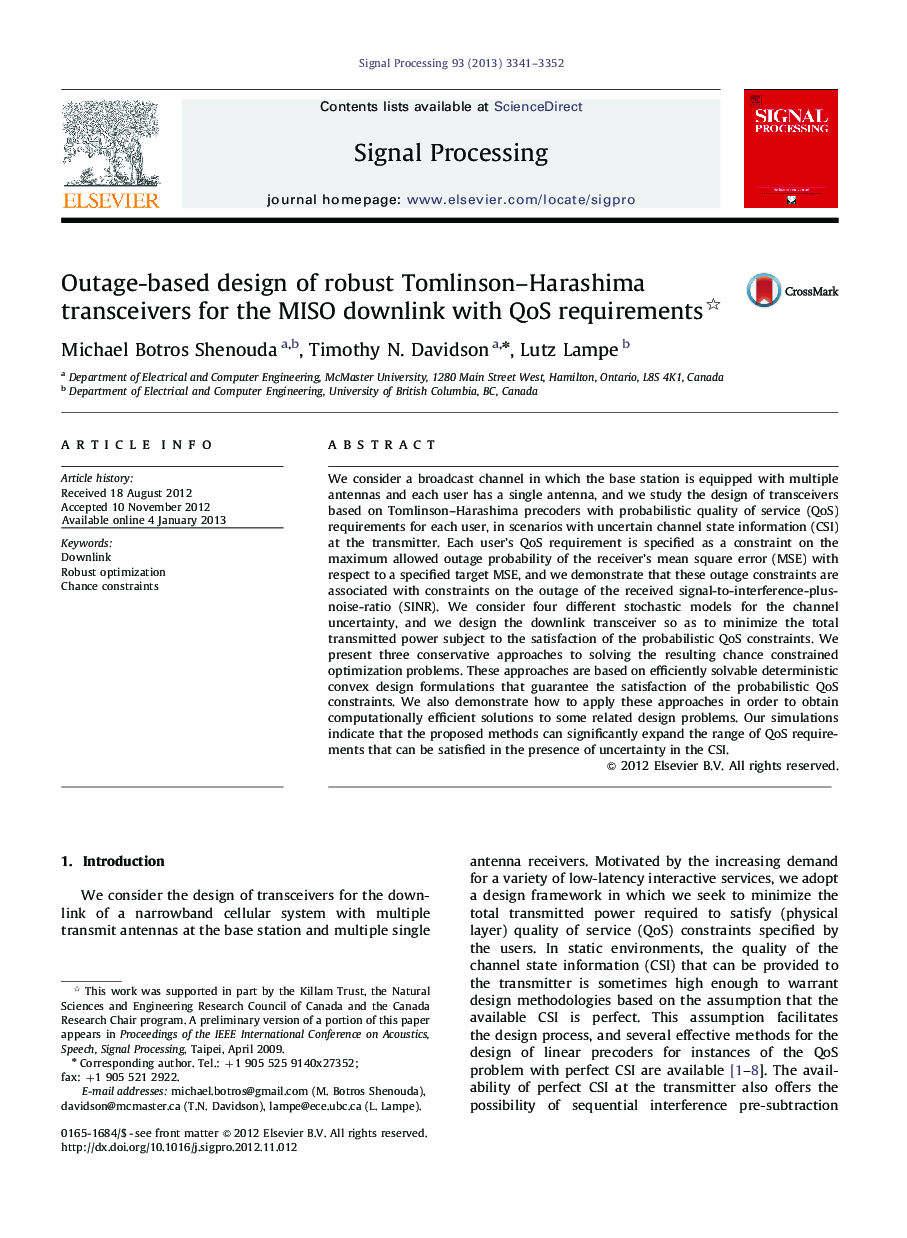| Article ID | Journal | Published Year | Pages | File Type |
|---|---|---|---|---|
| 561311 | Signal Processing | 2013 | 12 Pages |
We consider a broadcast channel in which the base station is equipped with multiple antennas and each user has a single antenna, and we study the design of transceivers based on Tomlinson–Harashima precoders with probabilistic quality of service (QoS) requirements for each user, in scenarios with uncertain channel state information (CSI) at the transmitter. Each user's QoS requirement is specified as a constraint on the maximum allowed outage probability of the receiver's mean square error (MSE) with respect to a specified target MSE, and we demonstrate that these outage constraints are associated with constraints on the outage of the received signal-to-interference-plus-noise-ratio (SINR). We consider four different stochastic models for the channel uncertainty, and we design the downlink transceiver so as to minimize the total transmitted power subject to the satisfaction of the probabilistic QoS constraints. We present three conservative approaches to solving the resulting chance constrained optimization problems. These approaches are based on efficiently solvable deterministic convex design formulations that guarantee the satisfaction of the probabilistic QoS constraints. We also demonstrate how to apply these approaches in order to obtain computationally efficient solutions to some related design problems. Our simulations indicate that the proposed methods can significantly expand the range of QoS requirements that can be satisfied in the presence of uncertainty in the CSI.
► Robust Tomlinson–Harashima transceivers are designed for the MISO downlink. ► The design goal is to minimize the power required to satisfy outage-based QoS constraints. ► Convex design formulations guarantee that the specified QoS is obtained. ► Numerical results show significant increases in the level of QoS that can be provided.
